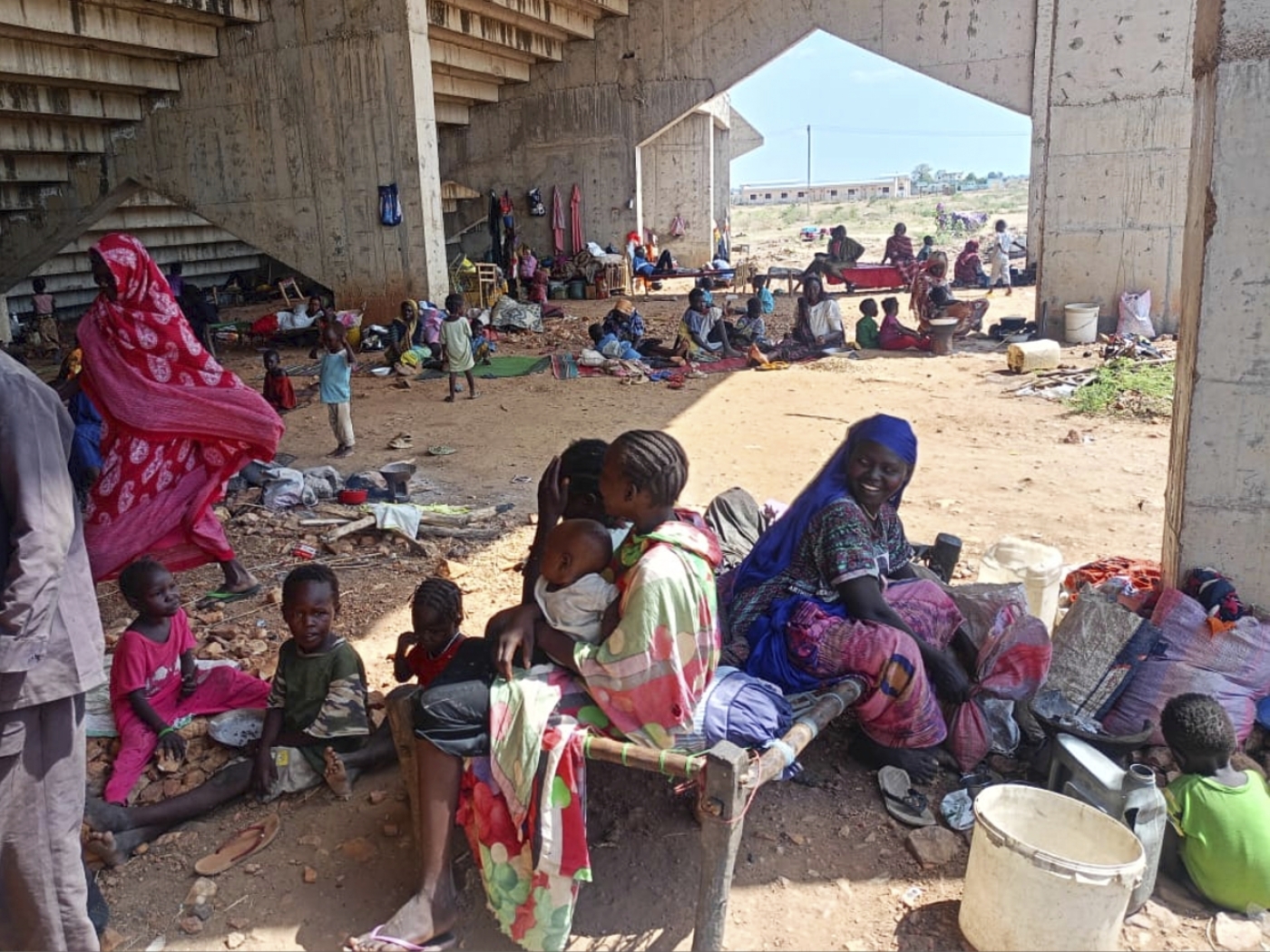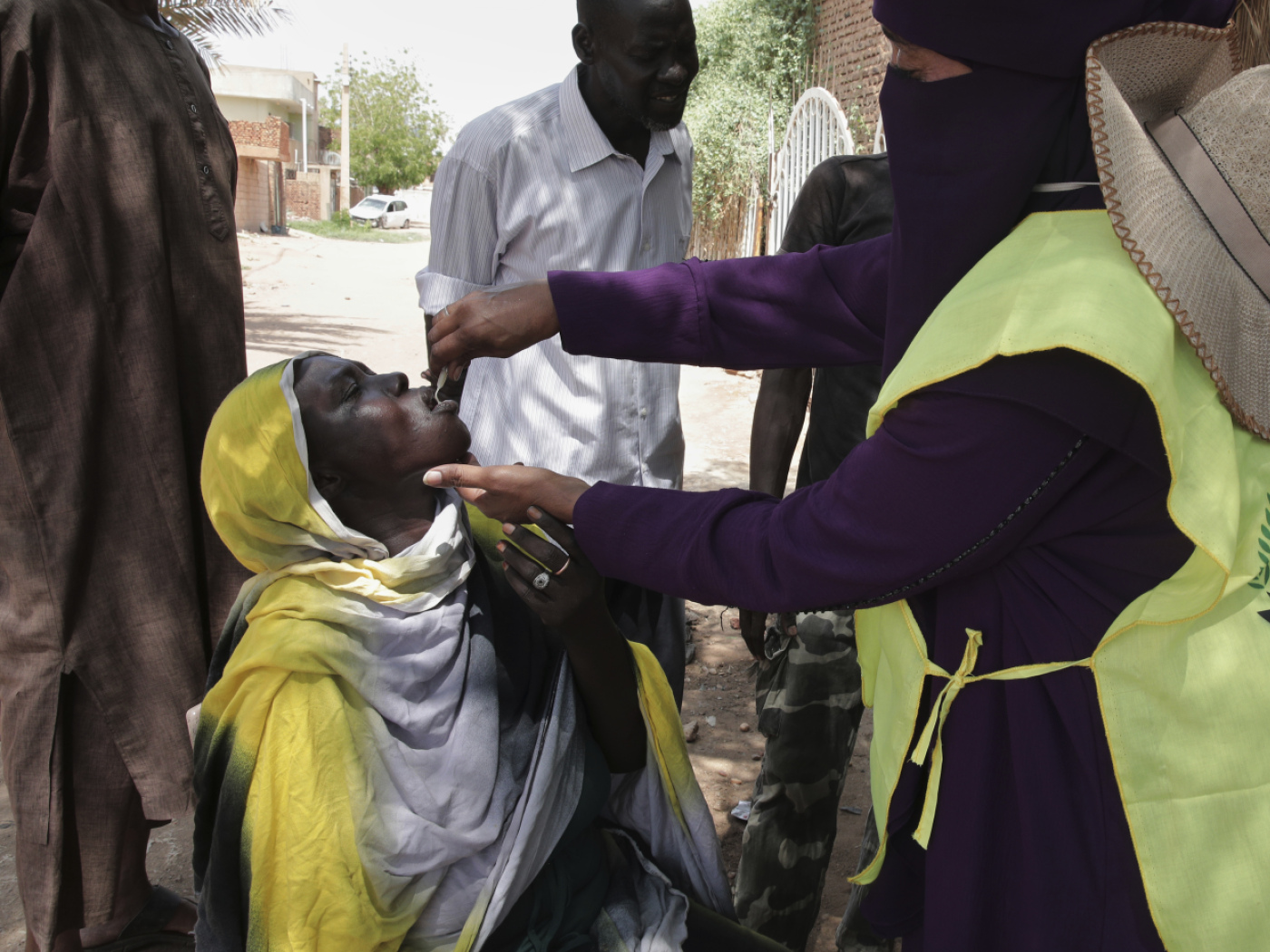
Switzerland joins calls for humanitarian protection in Sudan

Switzerland, the United States, and several other countries including Egypt, Saudi Arabia and the United Arab Emirates, have expressed dismay at the deteriorating situation in Sudan.
+Get the most important news from Switzerland in your inbox
“As the situation in Sudan worsens and humanitarian needs reach critical levels, the parties to the conflict must take urgent measures to protect civilians and allow and facilitate humanitarian access to those in need, in accordance with their obligations,” the countries said in a joint statement, also on behalf of the UN and the African Union.
+ Impunity is stalling all peace efforts in Sudan. Can it end?
The coalition of countries “is dismayed by the continuing deterioration of the humanitarian situation in Sudan, in particular by the growing number of people suffering from severe malnutrition and famine, as well as by the many obstacles that are delaying or blocking interventions in key areas”, they added.
Since April 2023, Sudan has been plunged into a power struggle between the head of the army, Abdel Fattah al-Burhane, and his former deputy, Mohamed Hamdane Daglo, head of the paramilitary Rapid Support Forces (RSF). The war has claimed tens of thousands of lives, uprooted millions of people and caused what the UN describes as “the world’s worst humanitarian crisis”.
The army controls the north, east and centre of the country, while the RSF dominates almost all of Darfur (west) and, with their allies, certain areas of the south.
UN presence
The coalition countries specifically called for “the removal of all bureaucratic obstacles that hinder and impede humanitarian activities” and for the parties to the conflict to commit “to keeping open the main supply routes for humanitarian convoys and personnel, including through humanitarian pauses and other arrangements as necessary”.
They also urged the parties to allow “a sustained UN humanitarian presence throughout the country, especially in areas of urgent humanitarian need, particularly in the Darfur and Kordofan regions”, as well as the restoration of access to telecommunications.
The Swiss Federal Department of Foreign Affairs (FDFA) relayed the coalition’s appeal on X, under the name ALPS (Aligned for Advancing Life Saving and Peace in Sudan).
Aid under attack
In a sign of the continuing violence in the country, a World Food Programme (WFP) aid convoy was attacked on Wednesday near the town of Mellit, in the western state of North Darfur, a spokesman for the UN agency told AFP.
Three of the 16 trucks in the convoy carrying humanitarian aid were damaged and caught fire, Gift Watanasathorn said, adding that the members of the convoy were “safe and sound”.
Mellit has been controlled by the RSF since April 2024. The town is 65 kilometres north of El-Facher, the capital of North Darfur, which has been under siege by paramilitaries for more than a year and is the last major bastion held by the army in the west of the country.
In a statement, the RSF accused the army of carrying out the attack during an air raid. There was no immediate reaction from the army.
Famine as a weapon of war
According to the WFP, thousands of families trapped in El-Facher are “threatened with starvation”, while both sides are accused of using starvation as a weapon of war and obstructing the delivery of aid.
Humanitarians are paying a heavy price for the conflict: more than 120 have been killed since the start of the war, according to the UN. In June, five aid workers were killed in a similar attack on a WFP and UNICEF convoy heading for El-Facher.
According to Médecins Sans Frontières (MSF), Sudan is also experiencing its worst cholera epidemic in years, fuelled by the ongoing conflict.

More
Switzerland releases CHF4 million for Sudan
Translated from French by DeepL/mga
We select the most relevant news for an international audience and use automatic translation tools to translate them into English. A journalist then reviews the translation for clarity and accuracy before publication.
Providing you with automatically translated news gives us the time to write more in-depth articles. The news stories we select have been written and carefully fact-checked by an external editorial team from news agencies such as Bloomberg or Keystone.
If you have any questions about how we work, write to us at english@swissinfo.ch

In compliance with the JTI standards
More: SWI swissinfo.ch certified by the Journalism Trust Initiative






























You can find an overview of ongoing debates with our journalists here . Please join us!
If you want to start a conversation about a topic raised in this article or want to report factual errors, email us at english@swissinfo.ch.